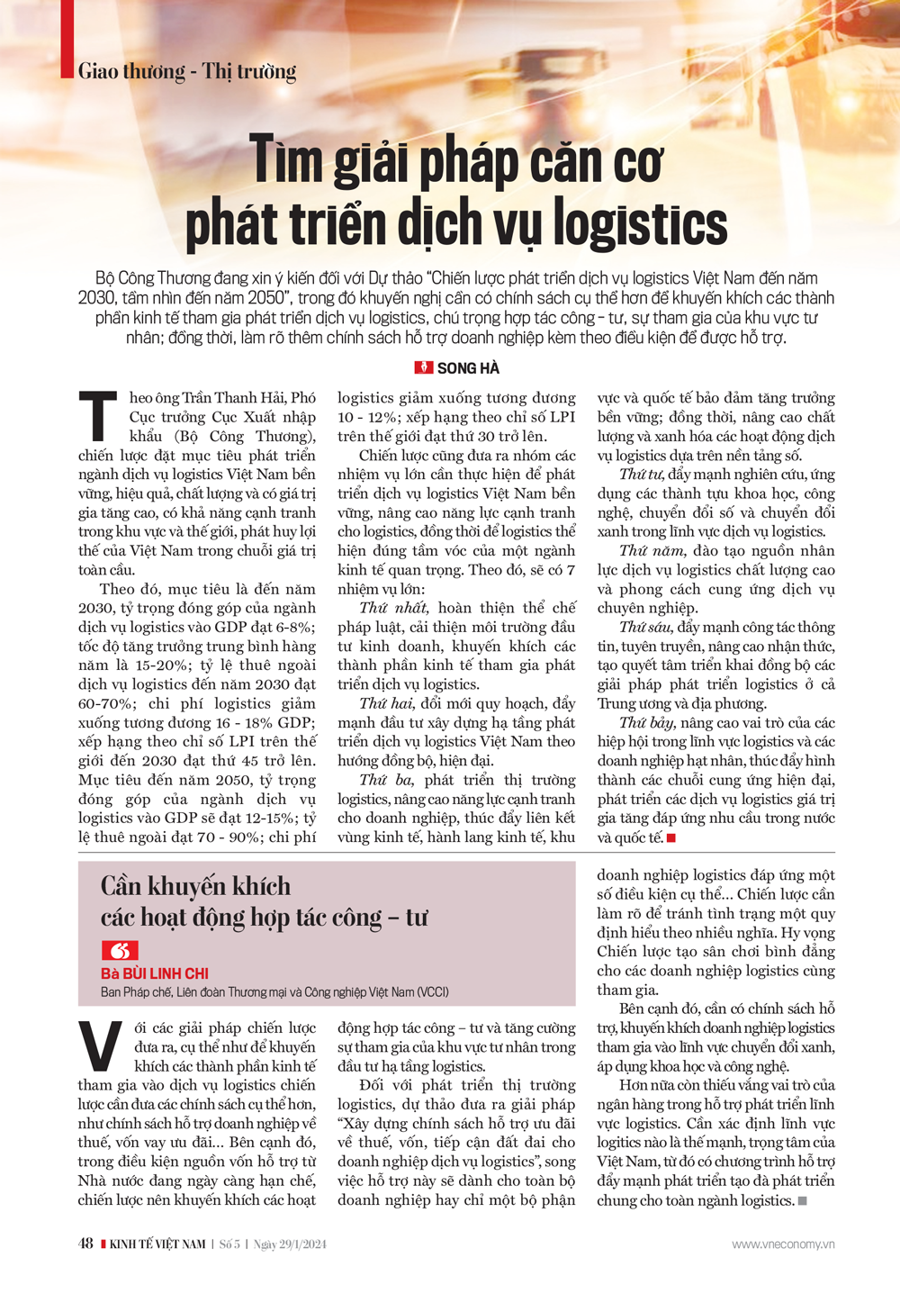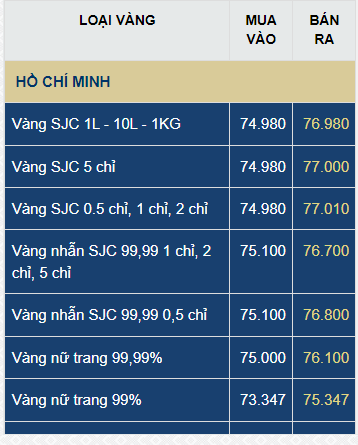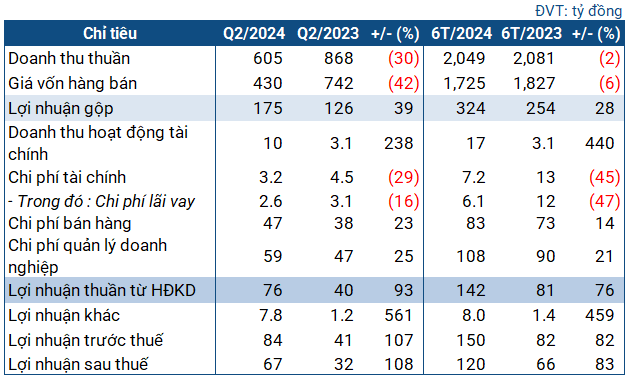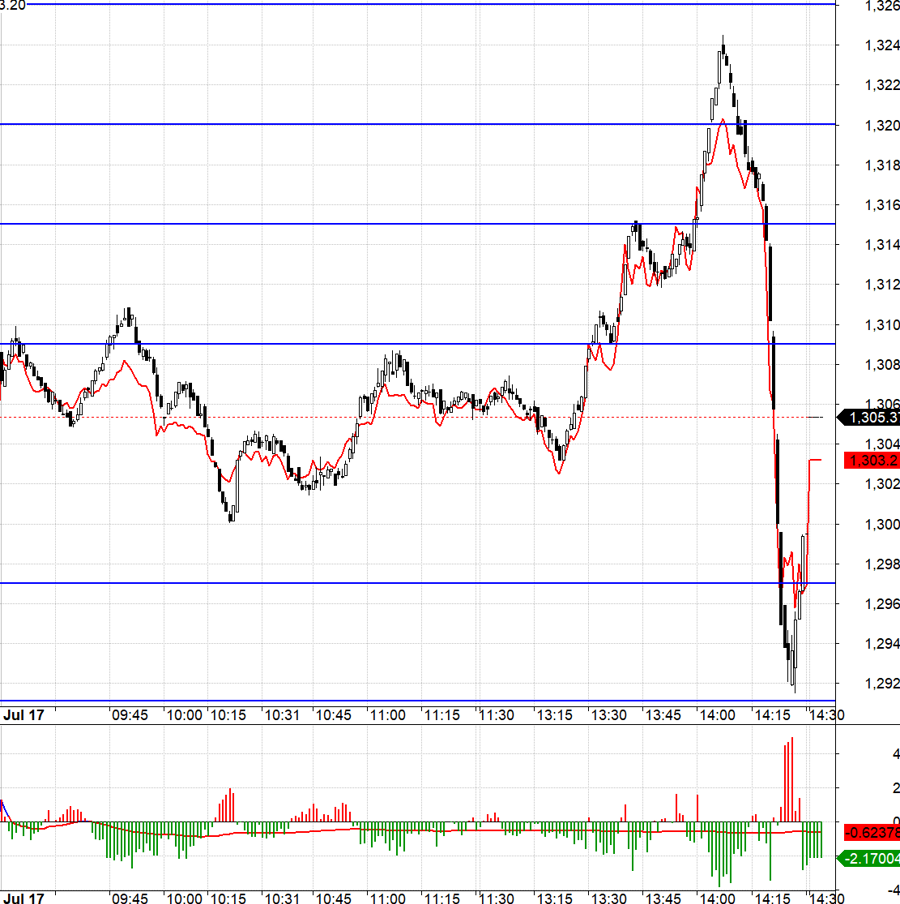The Ministry of Industry and Trade is seeking feedback on the draft “Vietnam Logistics Development Strategy by 2030, vision to 2050.”
According to Mr. Tran Thanh Hai, Deputy Director of the Import and Export Department (Ministry of Industry and Trade), the strategy aims to develop the Vietnam logistics sector in a sustainable, efficient, high-quality, and value-added manner, with competitiveness in the region and the world, harnessing Vietnam’s advantages in the global value chain.
By 2030, the goal is for the contribution of the logistics sector to GDP to reach 6-8%; the average annual growth rate to be 15-20%; the share of outsourced logistics services to reach 60-70% by 2030; logistics costs to decrease to around 16-18% of GDP; and to achieve a ranking higher than 45 on the LPI index by 2030.
By 2050, the goal is for the contribution of the logistics sector to GDP to reach 12-15%; the share of outsourced logistics to reach 70-90%; logistics costs to decrease to around 10-12% of GDP; and to achieve a ranking higher than 30 on the LPI index.
The strategy also identifies a group of major tasks that need to be carried out to develop sustainable logistics services in Vietnam, enhance competitiveness for logistics, and present logistics as a significant economic sector.
These major tasks are as follows:
First: Improve the legal framework, enhance the investment and business environment, and encourage economic entities to participate in logistics development.
Second: Innovate planning, accelerate investment in the construction of synchronized and modern infrastructure for the development of logistics services in Vietnam.
Third: Develop the logistics market, enhance competitiveness for businesses, promote economic zone linkages, economic corridors, regions, and international connections to ensure sustainable growth. Additionally, improve the quality and digitize logistics activities.
Fourth: Boost research and application of scientific and technological achievements, digital transformation, and green transformation in the logistics sector.
Fifth: Train high-quality logistics service personnel and provide professional service supply.
Sixth: Strengthen information, communication, raise awareness, and create determination to implement synchronized logistics development solutions at both central and local levels.
Seventh: Enhance the role of associations in the logistics sector and nuclear businesses, promote the formation of modern supply chains, and develop value-added logistics services to meet domestic and international demands.
PROMOTING PUBLIC-PRIVATE COOPERATION ACTIVITIES
Ms. Bui Linh Chi, Chairman of the Legal Committee, Vietnam Chamber of Commerce and Industry (VCCI)
To encourage economic entities to participate in strategic logistics services, specific policies such as tax support policies and preferential capital support should be established. Moreover, in the context of increasingly limited state support, the strategy should encourage public-private cooperation activities and enhance the participation of the private sector in logistics infrastructure investment.
Regarding the development of the logistics market, the draft proposes the solution of “Building supportive policies regarding tax incentives, capital, and land access for logistics service businesses.” However, it is essential to clarify whether this support will be provided to all logistics businesses or only a specific portion of logistics businesses that meet certain specific conditions, to avoid ambiguity in interpretation. It is hoped that the strategy will create an equal playing field for all logistics businesses.
In addition, there is a need for policies to support and encourage logistics businesses to engage in green transformation and the application of science and technology.
Moreover, the role of banks in supporting the development of the logistics sector is still lacking. It is necessary to determine which logistics sectors are Vietnam’s strengths and focus, and then establish a support program to accelerate development, creating momentum for the overall development of the logistics industry…
The article content was published in the Vietnam Economic Journal, issue 05-2024, released on January 29, 2024. You are invited to read here: https://postenp.phaha.vn/chi-tiet-toa-soan/tap-chi-kinh-te-viet-nam
https://postenp.phaha.vn/chi-tiet-toa-soan/tap-chi-kinh-te-viet-nam
































